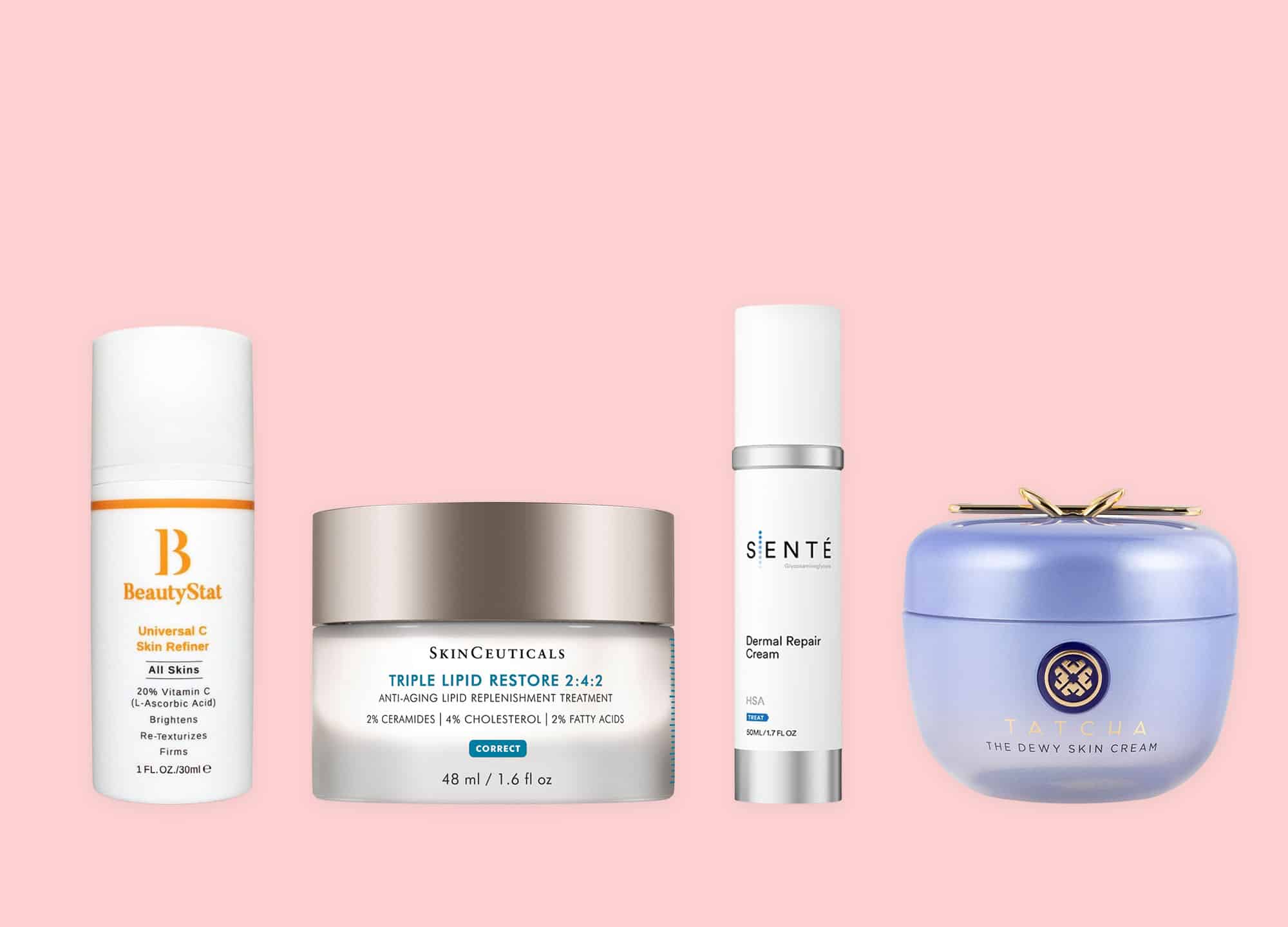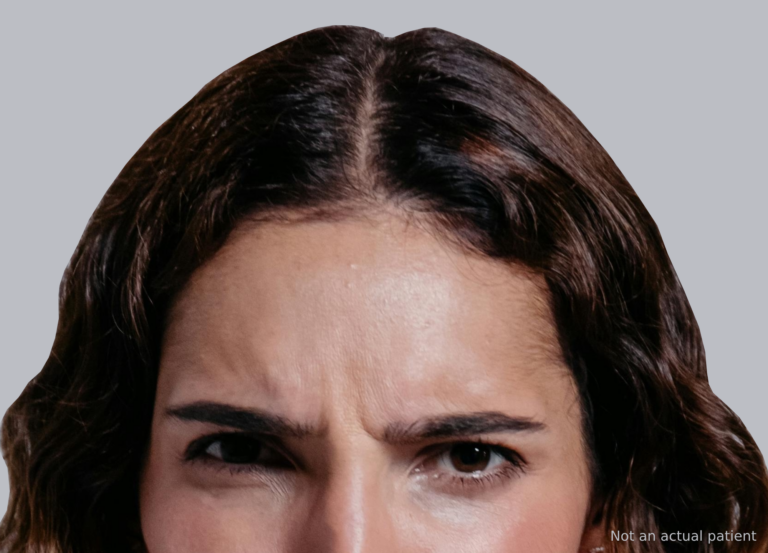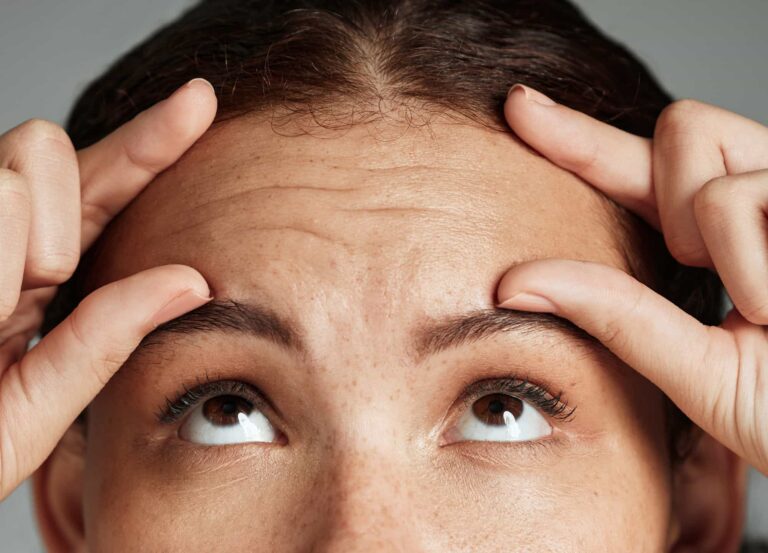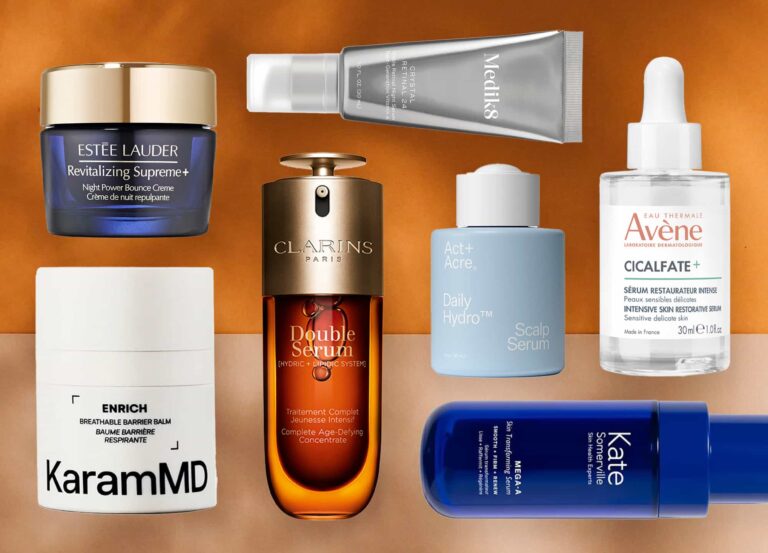Finding the perfect skin-care routine for your individual needs often depends heavily on your skin type—normal, dry, oily, combination, sensitive, acne-prone, mature—but it can also depend on your skin tone. According to the American Academy of Dermatology, different skin tones will face a different set of needs and concerns, and those with dark skin tones are more prone to developing certain skin conditions, such as dyschromia, hyperpigmentation, and melasma. It’s with this in mind that many Black dermatologists have spent years curating the best possible regimen for their specific needs. We asked three to share their must-have skin-care products.
Dr. Camille Howard-Verovic, a board-certified dermatologist in New York City
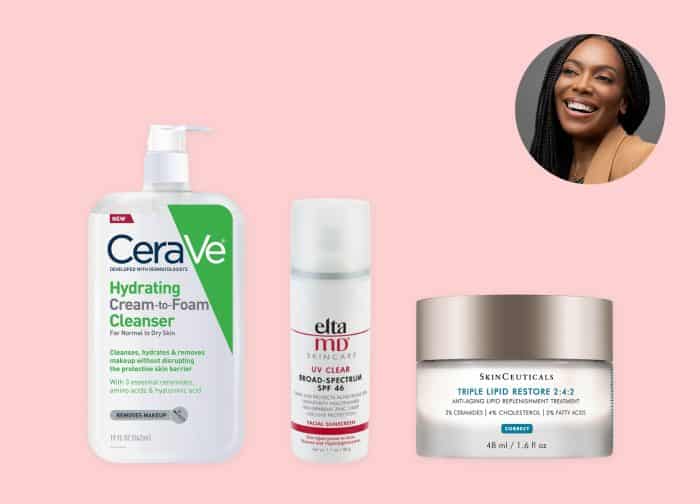
Dr. Howard-Verovic finds skin to be the most fascinating organ, and she loves that dermatology lets her combine her passions for beauty and science. When she began suffering from hyperpigmentation and adult acne around five years ago, her expertise in the field also enabled her to find a skin-care routine that would help.
Cleanser
Dr. Howard-Verovic starts off her morning by washing her face with CeraVe Hydrating Cream to Foam Cleanser ($14.99), which is gentle, is non-stripping, and contains all-important ceramides. On days when she wakes up with excess oil around her nose and chin, she opts for Jacq’s Healing Face Cleanser ($20). “It has papaya extract, which is a gentle fruit exfoliator,” she explains.
Moisturizer
SkinCeuticals Triple Lipid Restore 2:4:2 ($128) fits the bill for the derm’s skin needs. The anti-aging cream contains pure ceramides, natural cholesterol, and fatty acids, which are all proven to nourish skin and treat signs of aging. “I love this moisturizer, especially in the winter,” Dr. Howard-Verovic says. “It has ceramides and lipids—all essential components of the skin barrier.”
Sunscreen
Dr. Howard-Verovic knows how important the regular application of sunscreen is, regardless of skin tone, and she relies on EltaMD UV Clear Broad-Spectrum SPF 46 ($36). “I love, love this. It has niacinamide, a great anti-inflammatory, lactic acid, and a gentle alpha hydroxy acid.”
Serum
In the evenings, she adds Lancôme Advanced Génifique Face Serum ($105) to her skin-care routine. “It has hyaluronic acid and bifidus prebiotic,” she notes. “The hyaluronic acid attracts moisture, and the bifidus prebiotic creates a harmonious bacteria flora on the skin surface.”
Retinol
Retinol benefits those with dark spots and acne, so the derm brings the big guns in to her nightly regimen, with prescription 0.1% tretinoin, a vitamin A compound that she says “increases dermal elastic fibers and collagen and decreases hyperpigmentation.”
Dr. Corey L. Hartman, a board-certified dermatologist in Homewood, Alabama
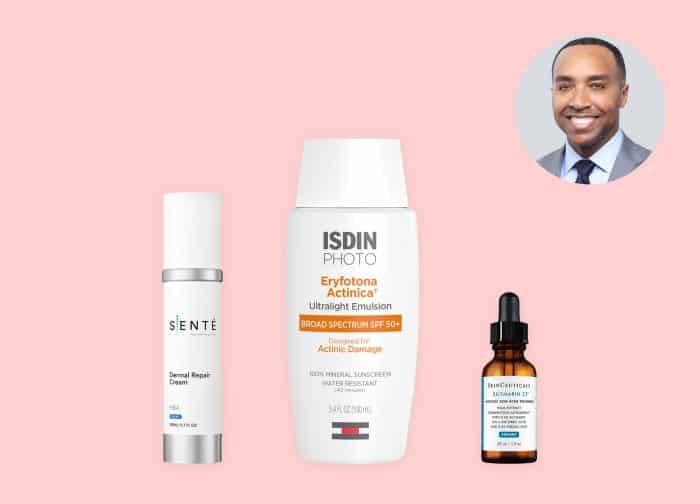
Dr. Corey Hartman’s talents in math and science paved a natural path to a career in medicine, but, he says, he was also always the “artsy kid” with a flair for music, theatre, and visual arts. He found that cosmetic dermatology was the perfect marriage of these qualities, allowing him to treat medical conditions, create beauty, and play a role in improving patients’ self-confidence.
Dr. Hartman’s personal skin concern? Acne that he’s dealt with since his teenage years. “It has never been severe, but it does lead to significant hyperpigmentation if not treated aggressively and early,” he says. “Not a day goes by that I don’t use a physical sunscreen, an antioxidant, hyaluronic acid, and a retinoid. These are the basics to control acne, maintain an even complexion, and prevent wrinkles and sagging.”
Antioxidant
An oil-free vitamin C serum that’s designed for oily, acne-prone skin, the derm trusts SkinCeuticals Silymarin CF ($166) to reduce oiliness, improve skin clarity, and refine skin texture—all while providing protection from environmental hazards.
Moisturizer
Keeping skin’s moisture barrier intact is necessary when it comes to preventing acne. In order to keep his skin hydrated and healthy, Dr. Hartman turns to Senté Dermal Repair Cream ($164), which reduces redness and improves the appearance of fine lines and wrinkles.
Sunscreen
Sunscreen is the most critical ingredient to good skin in the dermatologist’s eyes, and he’s a big fan of ISDIN Eryfotona Actinica Daily Mineral SPF 50+ Sunscreen ($55).
Retinol
“I often say that if forced to choose only one product after sunscreen, it would be the retinoid, every time,” says Dr. Hartman. “It provides so many anti-aging benefits that it’s hard to pack a more powerful punch in one product.” He switches it up between a prescription Arazlo lotion and SkinBetter AlphaRet Overnight Cream ($125).
Dr. Michelle Henry, a board-certified dermatologist in New York City
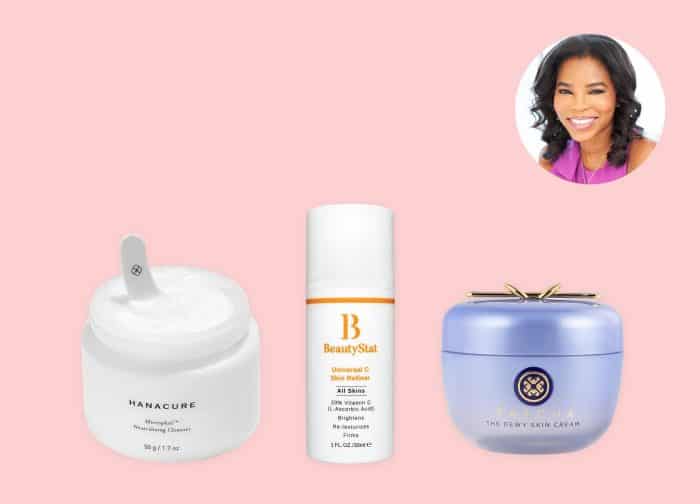
Dr. Michelle Henry loves the variety of experiences she has in dermatology. “I treat children and adults, I do cosmetics and medical treatments, and I treat cancer daily,” she says. “It keeps my days very interesting.” With such a busy schedule, however, the derm has no time to spare for acne flareups or bouts of hyperpigmentation, so over the years, she’s built a trusty skin-care routine she can rely on.
Cleanser
In the morning, Dr. Henry likes Hanacure Microphol Cleanser ($28), which she says is ultra-hydrating, pH-balancing, and made for sensitive skin. “At night, I try to use something a little more robust, just because I’m taking off makeup and everything from the day, so I’ll try to use active ingredients,” the dermatologist says. “I love glycolic acids for hyperpigmentation, so sometimes I’ll use a glycolic cleanser at night, depending on how dry I am.” Her picks: Glytone Mild Gel Cleanser ($10), Mario Badescu Glycolic Foaming Cleanser ($16), or the new Neutrogena Skin Balancing Gel Cleanser ($10.99).
Retinol
“I’m kind of naughty because I use a prescription retinoid, morning and night,” Dr. Henry admits. “I use Altreno because I am super, super acne-prone, and if I skip a day, I’ll break out.” To combat the drying effects of retinol, she’s sure to always use a very hydrating moisturizer right after.
Moisturizer
“As of late, I’ve been using Tatcha Dewy Skin Cream ($68), but I also like to mix in SkinCeuticals Triple Lipid Restore 2:4:2 [$128],” the dermatologist says.
Antioxidants
On the occasional days when Dr. Henry skips her retinoid in the morning—either because her skin feels dry or she just doesn’t think she needs it—she adds vitamin C in its place. “Right now, I’ve been using BeautyStat Universal C Skin Refiner [$80] and Kiehl’s Clearly Corrective Dark Spot Solution [$42],” she says. The latter has vitamin C as well as salicylic acid in it, so “it gives antioxidant protection but will also help to lighten dark spots.” She notes that she’d never use a vitamin C and a retinol at the same time: “They are optimal at different pH levels, so I’d worry that existing at a noncomparable pH would compromise either one of those ingredients.”
Sunscreen
“I wear a lot of sunscreen,” Dr. Henry says. “I use it every single day, even if I’m inside, because I’m usually by a window. I’ve dealt a fair amount with hyperpigmentation, so I really try to make sure that I am always wearing sunscreen at all times.” Right now, she prefers CeraVe Hydrating Sunscreen Sheer Tint SPF 30 ($16.99) because it’s mineral but still looks good on her skin or Supergoop! Unseen Sunscreen SPF 40 ($34), which “looks and feels like a makeup primer and is pretty mattifying.”







